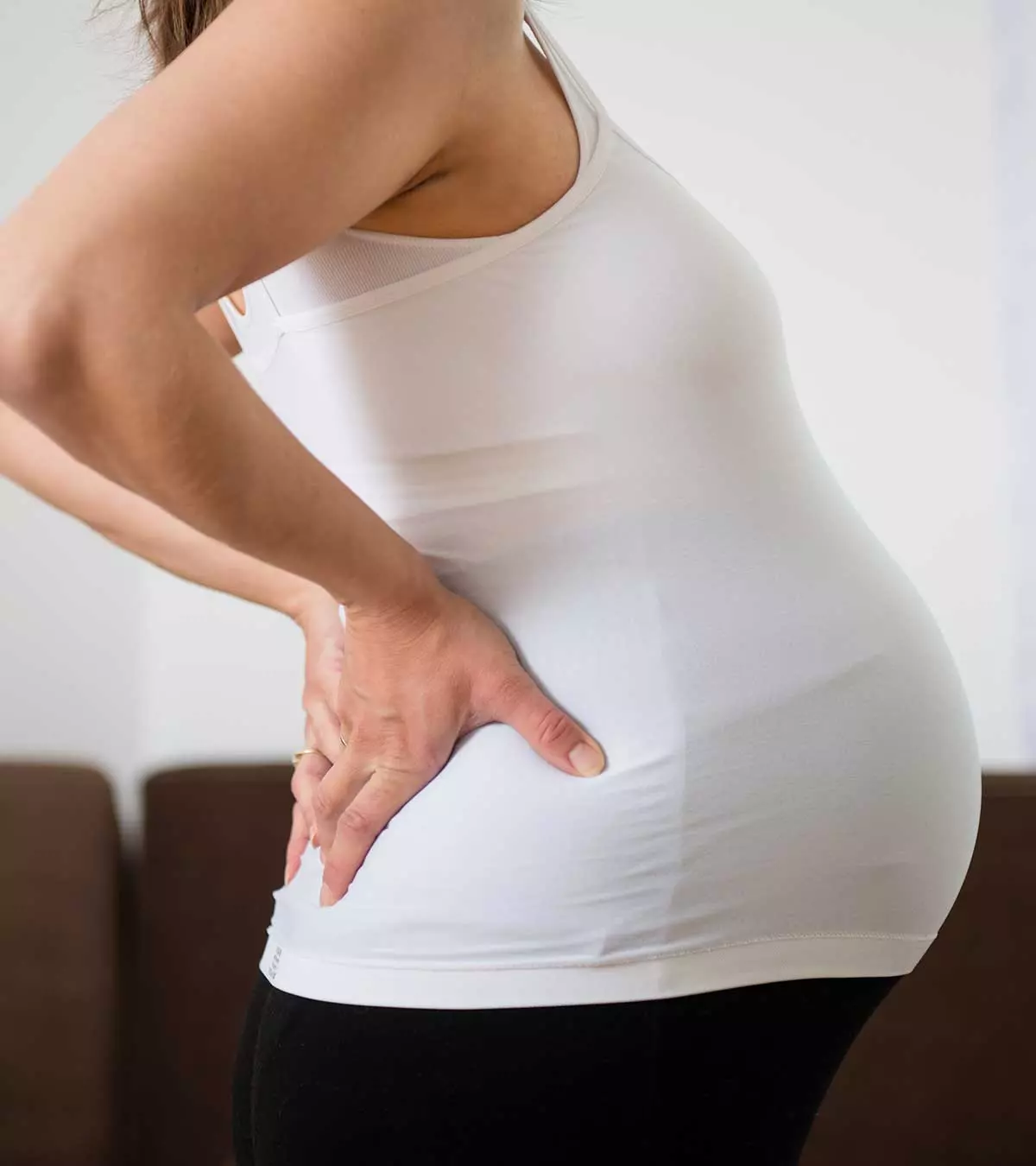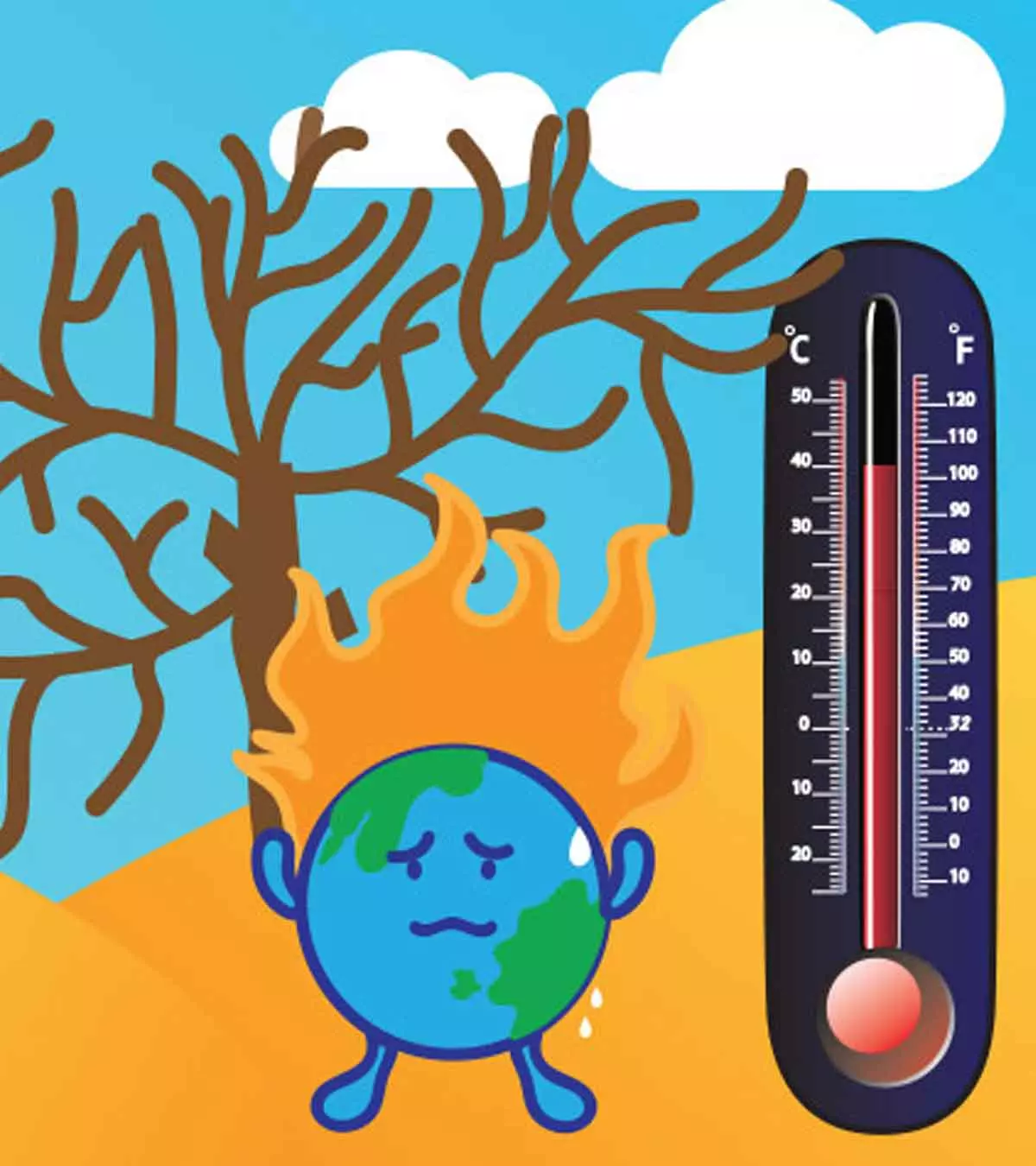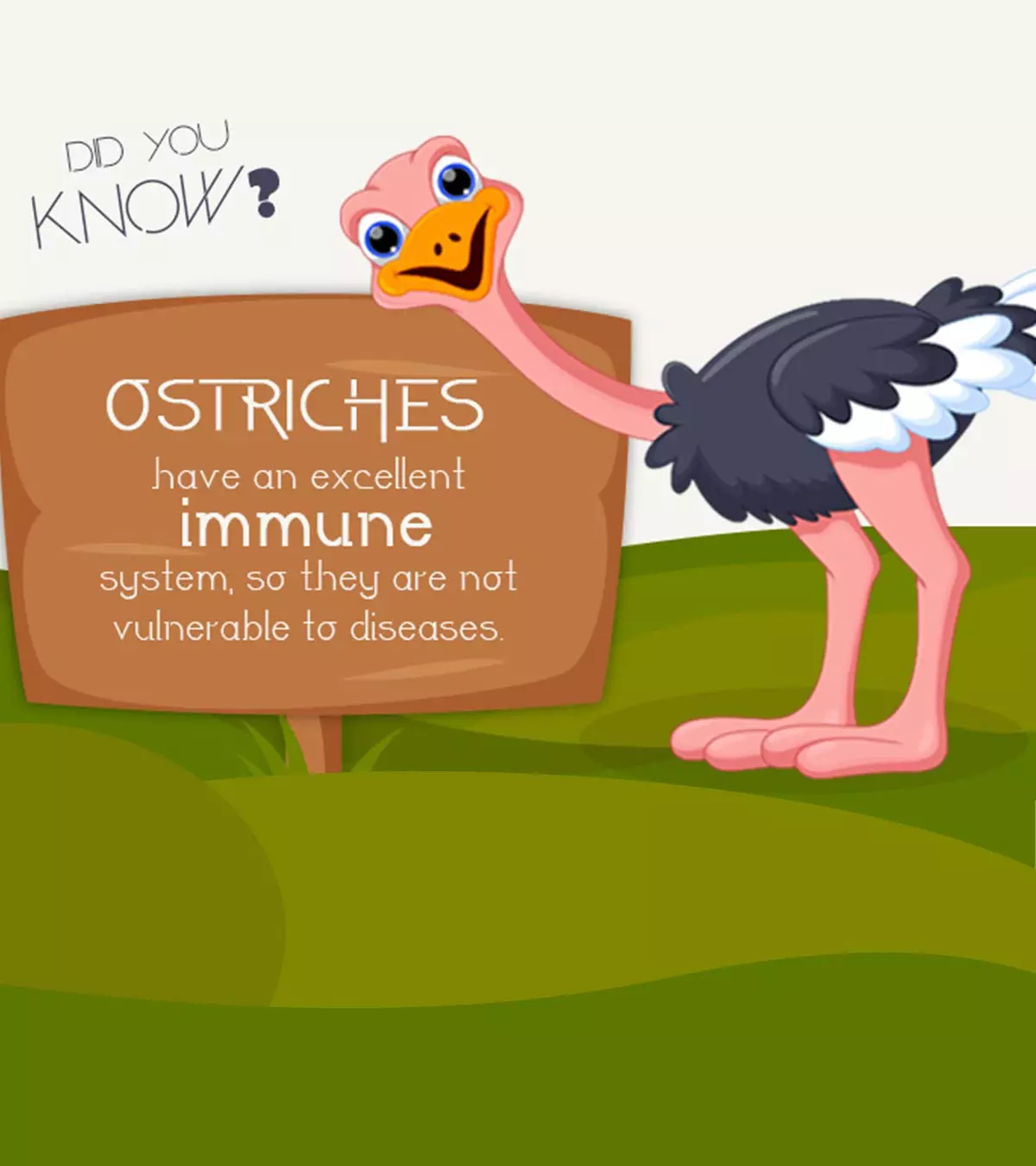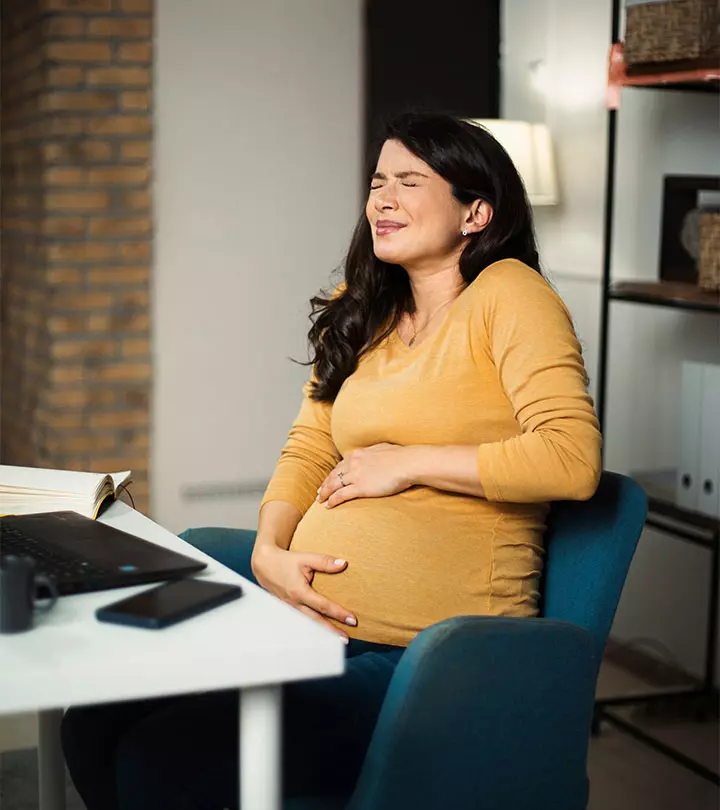

Image: iStock
Menopause marks the end of menstruation since ovaries stop producing eggs every month. Yet, several women might wonder if they can still get pregnant during menopause. Also, are there any health risks involved if a woman conceives during menopause?
Some women may also wonder if they should try to conceive during the perimenopausal stage instead of menopause. Perimenopause means “around menopause,” which refers to when a woman is transitioning from a reproductive phase to menopause.
Read this post as we tell you all about menopause, the chances for a woman to conceive during perimenopause and menopause, and the risks involved.
How Does Menopause Occur?
Menopause is the physical change that marks the end of menstruation. The process of menopause is slow and begins months or years before the menstruation phase ends. The process has three stages (1):
- Perimenopause: It is characterized by an irregular menstrual cycle and could begin around eight to ten years before menopause. It can start in the 40s or even in the 30s in some women. In this phase, the production of estrogen and progesterone, which are responsible for releasing eggs from the ovaries, gradually comes down. In the last one to two years, there is sharp drop in estrogen. During this phase, you are likely to have irregular periods, night sweats, hot flashes, forgetfulness, mood swings, stiff joints, weight gain, and a drop in sex drive (2).
- Menopause: This is the stage where a woman did not have her menstrual periods for at least a year. It usually occurs between 45 and 50 years. During this time, the ovaries stop releasing eggs, and it is the end of the reproductive stage. Therefore, the woman cannot ovulate or conceive (3).
- Postmenopause: In this stage after menopause, the menopausal symptoms ease. However, the decrease in the estrogen level makes women vulnerable to health problems such as osteoporosis, heart diseases, and obesity. Medications and lifestyle changes might lower the risk of these conditions (4).
This is the time when your reproductive cycle turns erratic, misses the rhythm and ultimately stops. What if you want to get pregnant under such circumstances?
Can You Get Pregnant During Perimenopause?
It is possible to become pregnant until you reach the menopausal stage, but it may be difficult. During the perimenopausal stage, though your periods are irregular, you are still ovulating and the ovaries release the mature eggs (3).
How Does Pregnancy Occur During Perimenopause?
Despite the irregular periods, ovulation occurs in the perimenopausal stage. Therefore, there is a chance for the release of a healthy egg, which gets fertilized with the release of the sperm, and you conceive.
Signs such as breast tenderness and white vaginal discharge could help you know you are ovulating. Unprotected sexual intercourse 3-4 days before ovulation and on the day of ovulation could increase the chances of getting pregnant.
Is Pregnancy Possible During Menopause?
Once you enter menopause, you no longer ovulate and cannot conceive naturally. Women enter the menopausal stage at various ages. It usually happens anytime between 40 and 55 years.
How Do You Know If You Are Still Fertile?
It is difficult to know about your fertility as the menstrual cycle turns irregular during perimenopause. You may or may not ovulate, and also the levels of estrogen, progesterone, and other hormones fluctuate while the egg quality could deteriorate. All these factors cause a decrease in fertility, but we cannot exactly predict the probability of natural conception.
Chances Of Getting Pregnant During Perimenopause And Postmenopause
If you hope to become pregnant during perimenopause, and you have not conceived even after six months of trying, you should consult a doctor. The below measures can increase your chances of getting pregnant:
- Intercourse during ovulation: Observe the signs of ovulation such as breast tenderness, abdominal bloating, increased sex drive, slight cramping, and white discharge. Ovulation time is the most fertile time in the menstrual cycle.
- Diet and exercise: Have a balanced diet and exercise to stay fit and healthy. These will improve the chances of conception.
- In vitro fertilization (IVF): Getting an IVF treatment during perimenopause or menopause could help. In this case, you may have to use the eggs that were frozen in the past or donor eggs. You might also need hormone therapy to prepare your body for implantation and pregnancy. However, this might not be the case for all women (5).
With lifestyle changes and medical help, you might get pregnant during the perimenopausal stage. But is it safe for you and the baby?
What Are The Risks Of Pregnancy During Perimenopause And Menopause?
Pregnancy becomes riskier as you age above 35. Here are some of the risks for both you and the baby (6) (7).
- IVF treatment could result in multiple fetuses. This is likely to cause preterm labor, low birth weight in babies and delivery complications.
- High blood pressure could lead to preeclampsia.
- Gestational diabetes.
- Placenta previa, in which the placenta lies low in the womb and causes problems during childbirth.
- Placental abruption in which the placenta is detached from the womb, causing fetal growth problems, stillbirth, and premature birth.
- Stillbirth or miscarriage.
- Premature or low birth weight.
- Ectopic pregnancy, where the egg is implanted outside the womb.
- Increased chances of birth defects.
The older you get, the higher are the chances of complications in pregnancy and delivery. Therefore, if you have decided against having children at this age, you might want to know about the use of contraception.
Do You Still Need Contraception During Perimenopause And Menopause?
Although you are less likely to get pregnant during the perimenopausal and menopausal stages, it is advisable to use contraceptives. There is a possibility to ovulate, even if the periods are irregular. Contraceptives, such as condoms, not only prevent unplanned pregnancy but also help you avoid sexually transmitted infections (10).
Can Menopause Be Reversed?
Research done on eight perimenopausal women has shown that temporary restoration of ovarian activity is possible. The women were injected with platelet-rich plasma (PRP) into ovaries. After one to three months, all participants resumed regular periods, and the doctor could retrieve mature eggs for fertilization (7).
Another research has found that melatonin restored the menstrual cycle in women who were in either the perimenopausal or menopausal stage. Melatonin is known to play a role in producing reproductive hormones (8).
However, these studies are limited and may not be universal.
Frequently Asked Questions
1. How commonly do women get pregnant during menopause?
Getting pregnant during menopause is uncommon but possible. A woman’s chance of conceiving is determined by how far she is in her perimenopause phase. As long as a woman has her periods, even if irregular, there’s a slight chance she may conceive. However, if a woman has reached menopause, she can’t conceive.
2. What is a menopause baby?
A baby conceived or born during perimenopause is often referred to as a menopause baby. However, this isn’t a term often used in medical terminology.
3. How long does menopause usually last?
The menopausal stage often begins between 45 and 55 years of age. Generally, it lasts for around 14 years though it may vary depending on several factors, such as the age when menopause begins (11).
4. How can I avoid menopause?
Preventing menopause isn’t possible. However, you can make healthy lifestyle changes, such as eating a well-balanced diet, exercising regularly, and getting enough sleep, to manage your symptoms and prevent possible complications.
5. How do I know if my period is late or I have reached menopause?
For women with a regular menstrual cycle, such as a 28-day cycle, their period is considered late when they don’t get it on the 29th day. However, some women have irregular period cycles. They may have early or late periods, and the duration of their period may also vary each time (12). On the other hand, menopause is when your period completely stops for at least 12 consecutive months (13).
Since menopause stops ovulation, conceiving during menopause is not possible. However, you can embrace motherhood by considering adoption. It will help you experience motherhood and provide a better life for the child. However, if you want a biological child, you should try getting pregnant during the perimenopause phase. Consult your doctor to understand the possibilities and risks involved if you want to conceive during or after menopause. Assisted reproductive technology like IVF can help but not in all cases. So check your options in consultation with your doctor to make an informed decision.
Key Pointers
- Menopause marks the end of the menstruation phase and is divided into three stages.
- Women may get pregnant after the menstrual phase with the right diet and timing or through IVF.
- Pregnancy during this period may be accompanied by complications such as premature birth, placental abruption, or ectopic pregnancy.
- You may consult your Ob/Gyn about the different ways to have a baby after menopause.
References
1. Stages of menopause; Women’s Health Research Institute; Northwestern University
2. Perimenopause: Rocky road to menopause; Harvard Health Publishing; Harvard Medical School
3. Menopause; US Department of Health and Human Services (2019)
4. Postmenopause; Northwell Health
5. In vitro fertilization (IVF); Center for Women’s Health; Oregon Health & Science University
6. Pantos K et al.; Clare Tower; Pregnancy in peri- and postmenopausal women: challenges in management; NCBI; NIH; New York Fertility Institute
7. Brittany J Harrison et al.; Advanced maternal age: Ethical and medical considerations for assisted reproductive technology; Int J Womens Health (2017)
8. Baldwin MK and Jensen JT; Contraception during the perimenopause; Maturitas (2013)
9. Bellipanni G et al.; Effects of melatonin in perimenopausal and menopausal women: A randomized and placebo controlled study; Exp Gerontol (2001)
10. Tower C; Pregnancy in peri- and postmenopausal women: Challenges in management; Menopause Int (2009)
11. What Is Menopause?; National Institute of Health
12. Stopped or missed periods; NHS
13. My Periods Have Changed. Is Menopause Around the Corner?; American College of Obstetricians and Gynecologists
Community Experiences
Join the conversation and become a part of our nurturing community! Share your stories, experiences, and insights to connect with fellow parents.
Read full bio of Dr. Anita Gondy
Read full bio of Rebecca Malachi

















